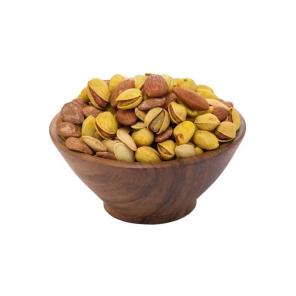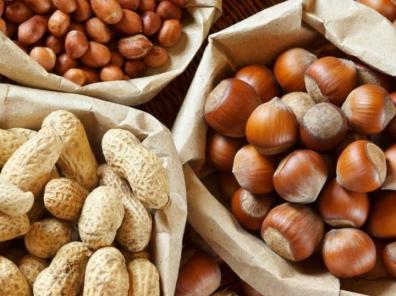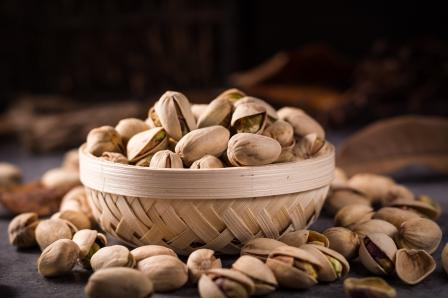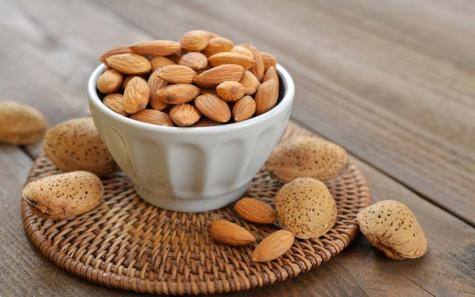In the world of nutritious and versatile nuts, peanuts stand out as a popular choice for both snacking and culinary applications. Packed with essential nutrients and offering a deliciously nutty flavor, peanuts have earned a prominent place in various cuisines around the globe. In this comprehensive guide, we delve into the world of natural peanuts, exploring their health benefits, culinary uses, and the sustainable practices associated with their cultivation. Health Benefits of Natural Peanuts: Natural peanuts are a nutritional powerhouse, offering a range of health benefits that make them a valuable addition to a balanced diet. These legumes are rich in protein, providing a plant-based source of this essential nutrient that is crucial for muscle maintenance and repair. Additionally, peanuts are a good source of healthy fats, including monounsaturated and polyunsaturated fats, which are beneficial for heart health.
.
 Moreover, peanuts are loaded with vitamins and minerals, such as vitamin E, folate, magnesium, and potassium, which play key roles in maintaining overall health and well-being. Folate, for instance, is important for proper cell division and DNA synthesis, making it essential for pregnant women to support the healthy development of the fetus. Furthermore, peanuts contain antioxidants, including resveratrol and flavonoids, which have been linked to reducing inflammation and lowering the risk of chronic diseases, such as heart disease and certain types of cancer. These antioxidants help protect cells from damage caused by free radicals, thereby contributing to the prevention of oxidative stress-related illnesses. Culinary Delights with Natural Peanuts: In the culinary world, natural peanuts are celebrated for their versatility and delicious flavor profile. Whether roasted, boiled, or ground into creamy peanut butter, peanuts lend their nutty essence to a wide range of dishes, from savory to sweet. In Asian cuisine, peanuts are a common ingredient in stir-fries, sauces, and noodle dishes, adding a crunchy texture and a rich, savory taste. Peanut butter, a beloved spread enjoyed by people of all ages, is a staple in many households and is used in sandwiches, smoothies, baked goods, and savory sauces. Its creamy texture and nutty flavor make it a versatile ingredient that can elevate both simple snacks and gourmet recipes. Moreover, peanuts can be used to create decadent desserts, such as peanut butter cookies, peanut brittle, and peanut butter cups, which showcase the delightful combination of sweet and salty flavors. The possibilities are endless when it comes to incorporating natural peanuts into your culinary creations, whether you’re baking, cooking, or snacking.
Moreover, peanuts are loaded with vitamins and minerals, such as vitamin E, folate, magnesium, and potassium, which play key roles in maintaining overall health and well-being. Folate, for instance, is important for proper cell division and DNA synthesis, making it essential for pregnant women to support the healthy development of the fetus. Furthermore, peanuts contain antioxidants, including resveratrol and flavonoids, which have been linked to reducing inflammation and lowering the risk of chronic diseases, such as heart disease and certain types of cancer. These antioxidants help protect cells from damage caused by free radicals, thereby contributing to the prevention of oxidative stress-related illnesses. Culinary Delights with Natural Peanuts: In the culinary world, natural peanuts are celebrated for their versatility and delicious flavor profile. Whether roasted, boiled, or ground into creamy peanut butter, peanuts lend their nutty essence to a wide range of dishes, from savory to sweet. In Asian cuisine, peanuts are a common ingredient in stir-fries, sauces, and noodle dishes, adding a crunchy texture and a rich, savory taste. Peanut butter, a beloved spread enjoyed by people of all ages, is a staple in many households and is used in sandwiches, smoothies, baked goods, and savory sauces. Its creamy texture and nutty flavor make it a versatile ingredient that can elevate both simple snacks and gourmet recipes. Moreover, peanuts can be used to create decadent desserts, such as peanut butter cookies, peanut brittle, and peanut butter cups, which showcase the delightful combination of sweet and salty flavors. The possibilities are endless when it comes to incorporating natural peanuts into your culinary creations, whether you’re baking, cooking, or snacking.
..
Sustainable Practices in Peanut Cultivation: As the demand for peanuts continues to rise, it is essential to consider the environmental impact of peanut cultivation and adopt sustainable practices to ensure the long-term viability of this crop. Sustainable peanut farming involves practices that promote soil health, conserve water resources, and minimize the use of chemical inputs. One key aspect of sustainable peanut cultivation is crop rotation, which helps maintain soil fertility and reduce pest pressure. By rotating peanuts with other crops, such as legumes, grains, or cover crops, farmers can prevent soil erosion, improve soil structure, and break pest cycles, reducing the need for chemical pesticides. Furthermore, water management is crucial in peanut farming, as peanuts require adequate moisture to grow properly. Implementing irrigation systems that are efficient and minimize water waste can help conserve water resources and ensure consistent yields without putting undue stress on local water sources. Additionally, the use of integrated pest management (IPM) practices can help farmers control pests and diseases in a sustainable manner. By using biological controls, such as beneficial insects, and monitoring pest populations to determine the need for intervention, farmers can reduce their reliance on chemical pesticides and minimize their impact on the environment. Conclusion: Natural peanuts are a true nutritional gem, offering a wealth of health benefits, culinary possibilities, and sustainable practices that make them a valuable addition to a healthy and environmentally conscious lifestyle. Whether you enjoy them as a protein-packed snack, a flavorful ingredient in your favorite dishes, or a sustainable crop cultivated with care for the planet, peanuts have something to offer everyone. By choosing natural peanuts and supporting sustainable farming practices, you can savor the taste of this versatile legume while contributing to a healthier planet for future generations. Embrace the richness of natural peanuts in your diet and experience the goodness they have to offer in every delicious bite.
…
**Additional Information on Natural Peanuts:** Nutritional Value of Peanuts: In addition to being a good source of protein, healthy fats, vitamins, and minerals, natural peanuts also provide dietary fiber, which is important for digestive health. Fiber helps promote regular bowel movements, prevent constipation, and support a healthy gut microbiome. Consuming adequate fiber can also help lower cholesterol levels and reduce the risk of developing chronic diseases, such as heart disease and type 2 diabetes. Moreover, peanuts are a low-glycemic index (GI) food, meaning they cause a slower and more gradual increase in blood sugar levels compared to high-GI foods. This makes peanuts a suitable choice for individuals looking to manage their blood sugar levels and maintain steady energy throughout the day. Including peanuts in meals or snacks can help stabilize blood sugar levels and prevent sharp spikes and crashes. Allergies and Precautions: While peanuts offer numerous health benefits, it’s important to be aware of potential allergies associated with this legume. Peanut allergies are among the most common food allergies worldwide, affecting both children and adults. Symptoms of a peanut allergy can range from mild to severe and may include itching, hives, swelling, difficulty breathing, and in severe cases, anaphylaxis. Individuals with peanut allergies should avoid consuming peanuts and products containing peanuts to prevent allergic reactions. It’s also important to read food labels carefully and inquire about potential cross-contamination with peanuts in packaged foods, as even trace amounts of peanuts can trigger an allergic response in sensitive individuals. For those with peanut allergies, alternative nut butters made from almonds, cashews, or sunflower seeds can be a safe and delicious substitute for peanut butter in recipes. It’s essential to consult with a healthcare provider or allergist for personalized advice on managing peanut allergies and identifying safe food choices.




Your comment submitted.